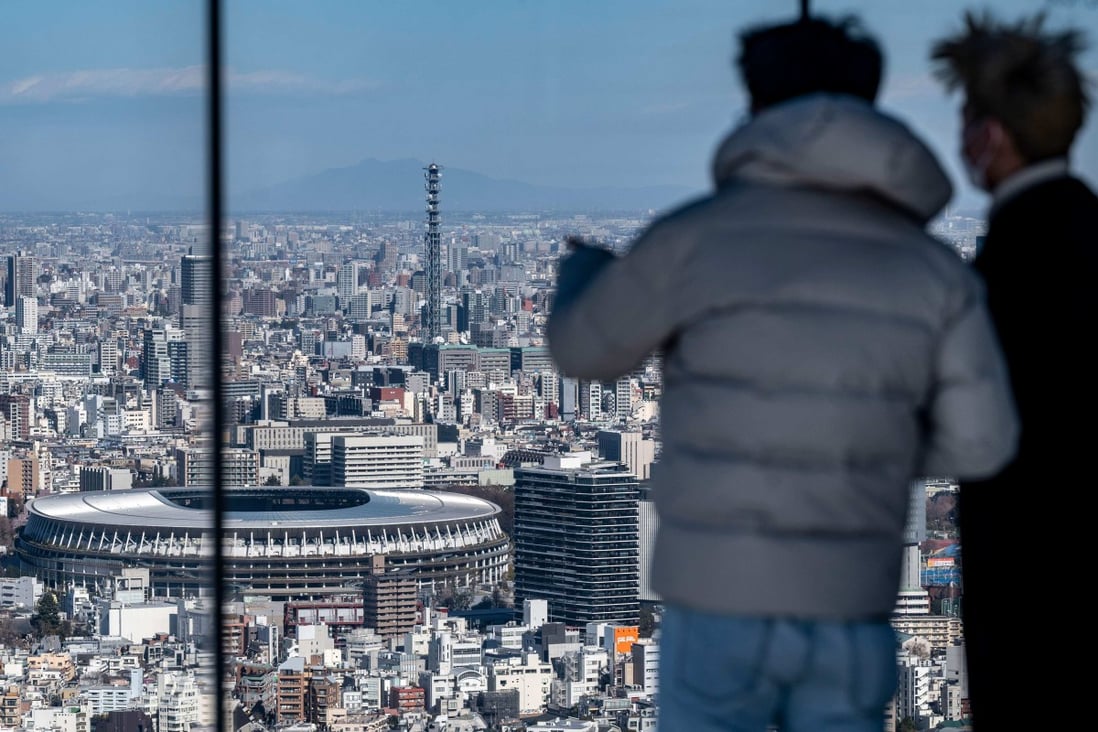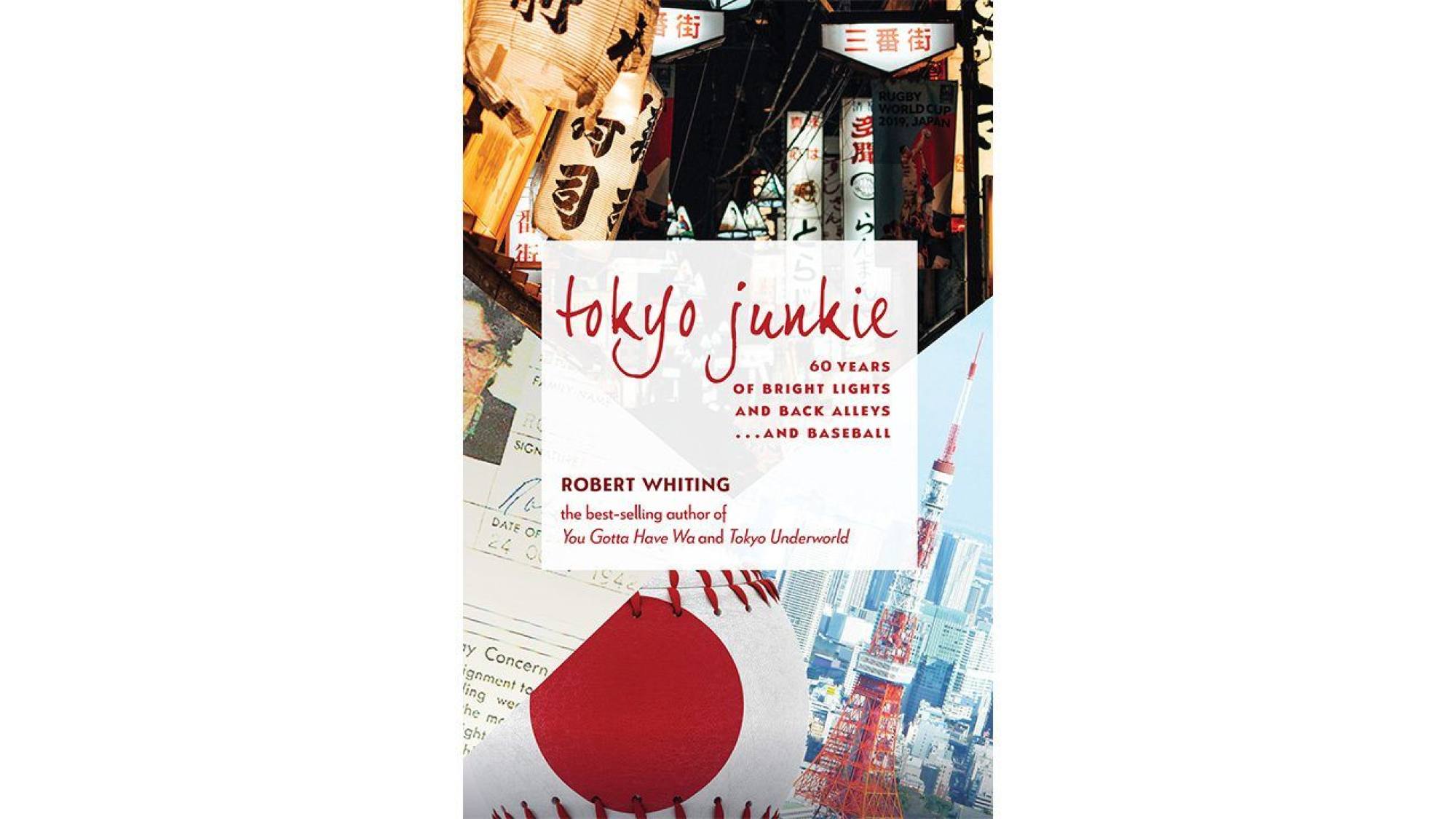Review | Tokyo Junkie: Robert Whiting’s eyewitness account of how Japan’s capital has changed in the past six decades
Robert Whiting’s personal narrative of life in Tokyo offers a compelling study of the society in with which he has thrown his lotHe approaches many topics, among them salarymen, the yakuza, nightlife and the world of Japanese sports
Topic | JapanRoger Pulvers+ FOLLOW
Published: 5:45pm, 24 Apr, 2021Why you can trust SCMP4Post


Visitors to the Shibuya Sky observation deck in Tokyo enjoy the view. Photo: AFP
Tokyo Junkie
by Robert Whiting
Stone Bridge Press
Westerners have been visiting Japan and recording their observations for more than 150 years, for the most part measuring everything they see by a yardstick configured in their own country. Their books tell us more about the disposition and biases of the authors than the country they are purporting to examine.
When Robert Whiting arrived in Japan, aged 19, from the United States, he was, by his own admission, no exception. Tokyo Junkie tells how he became an astute eyewitness to the country’s progress and made it his home. An account of a radically changing city during the past six decades, it is a refreshing, enlightening and self-reflexive story.
Whiting arrived in Japan in 1962 – a good time for the country. Before the 1964 Olympic Games and the inauguration of the Shinkansen bullet train, Tokyo was, in many ways, a conglomeration of villages. It was transfigured by the end of the century into a gargantuan conurbation, the so-called Tokyo Zone, home to more than 38 million people. And yet Tokyo remains a vast net of developed villages.

Tokyo Junkie by Robert Whiting. Photo: Handout
Whiting takes up several issues, among them the plight of the 460,000 Koreans sent to Japan during the 35-year occupation of that country and whose families remain residents, despite discrimination against them; the disconsolate life of the salaryman during the three decades of rapid growth from the 1960s to the 1980s; the power the yakuza wields in politics; his encounters with influential brokers in the media; the raunchy requisites of Japan’s nightlife; and the cultural underpinnings of the Japanese sports world, into which he has delved in earlier books, including You Gotta Have Wa (1989), about Japanese baseball.
His immersion into Japanese life heralded his own coming of age, from an American intelligence officer in the US Air Force to a salaryman himself, with all the dreary obligations that entails, including endless meetings that follow the adage, “We discuss but do not decide. We decide but do not act.”
Whiting befriended thugs whose mangy faux-patriotism vied with that of their right-wing politician idols. He reveals that these gangsters were stubborn admirers of America and Americans, and they considered “Bobu-san” one after their own heart. (He probed the phenomenon of the yakuza’s links with political and financial bosses in his 1999 book Tokyo Underworld.)EVERY SATURDAYSCMP Global Impact NewsletterSIGN UP NOWBy registering, you agree to our T&C and Privacy Policy
But after 10 years in Japan he found himself donzoko, or at the bottom – physically, ethically and emotionally. New York beckoned. Yet he had become as much a misfit in his “own” society as he was in Japan’s, perhaps even more so, which is why he returned to Tokyo in the mid-1970s. It is there his personal narrative becomes a compelling study of the society in with which he has thrown his lot.
How the coronavirus may change Japan for good9 Jul 2020
Whiting is intimate with the inner workings of the Kisha (reporters’) Club system, which excludes access to journalists the government deems unsympathetic to its agendas. He chronicles the shrivelling asset bubble after the death of Emperor Hirohito in 1989 and the stagnation of the decades that followed. And he takes us up to the cancelled 2020 Olympics, plagued by cost overruns, the vote-buying scandals of the Shinzo Abe era, and the continuing disaster in Fukushima, which then-prime minister Abe glibly assured the world was “under control”.
Whiting writes it is the Japanese people’s standoffishness and customary use of face masks that ensured a lower infection rate from Covid-19 than that in many other developed countries. While this is true, a death toll of more than 9,500 is not small compared with island nations such as New Zealand and Australia.
In the end, Whiting made lifelong friends from every layer of society, and he writes about them with warmth and empathy. “We all tend to look at the way other people live through the prism of our own set of values,” he writes of post-war Japan. “To many Japanese [the] all-consuming struggle out of the dust and the ashes was a kind of life fulfilment. There was a certain beauty in it.”
Tokyo Junkie has captured that beauty in diverse and vivid ways.
Leave a comment